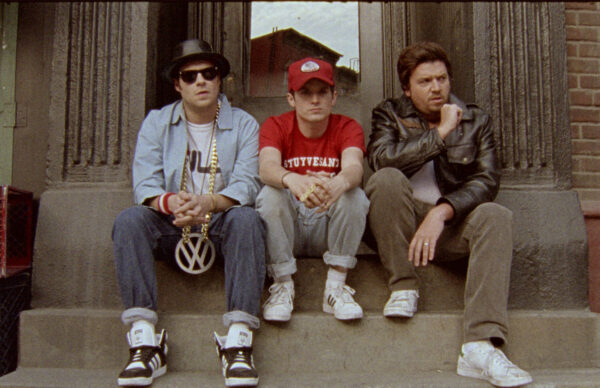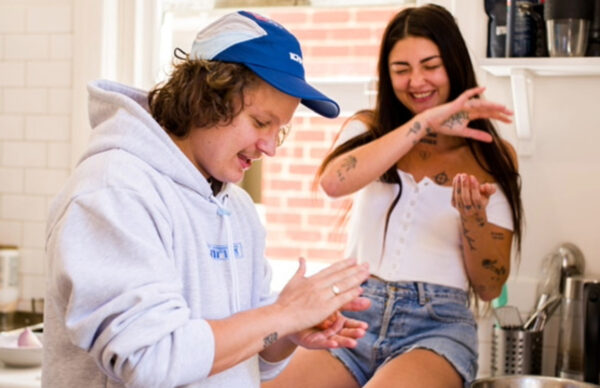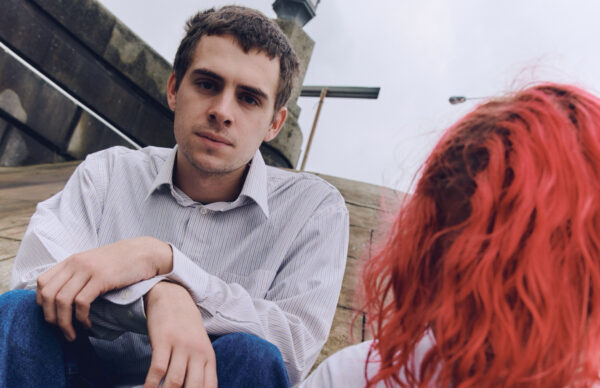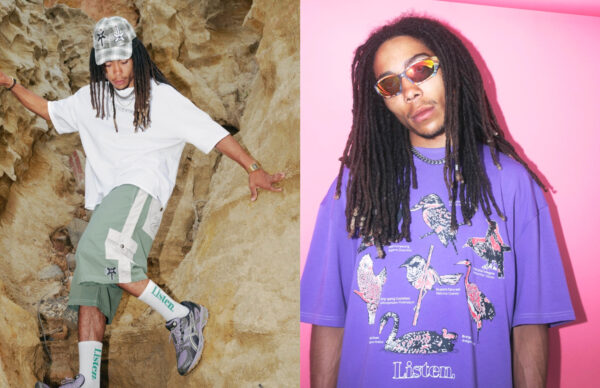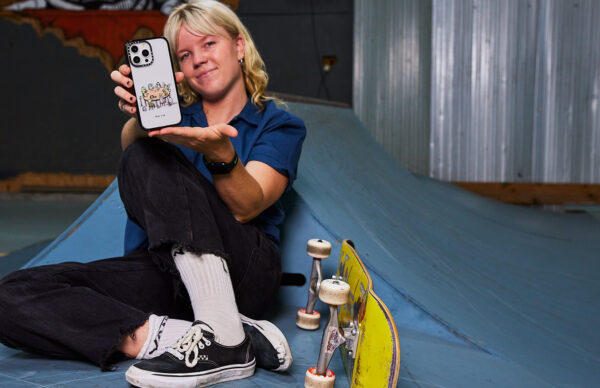Words by Emma Hakansson, Founder and Director of Collective Fashion Justice // Image of Emma Hakansson by Justin Vague
Thanks to the work of a new, fashion-focussed non-profit, and Animal Justice Party MP Andy Meddick, it’s looking like a fur ban is in Melbourne’s future.
If you go into a boutique or market in Melbourne, and see a cute beanie or keyring with a fluffy bobble on it, you might assume that it’s faux fur. You’d surely trust that it’s faux fur, if that was what the label told you. After all, it’s what many people do every day when they go shopping — they believe the information they’re given, as they deserve to.
Unfortunately, this trust is being betrayed. Recent reports have shown yet again, that fur is being mislabelled in Melbourne. Independent testing of fur samples sold in stores and market stalls has found real animal fur from individuals who have been confined inside cages, killed brutally, even by horrific anal electrocution, misleadingly labelled as ‘faux fur’.
More recent test results, commissioned by Collective Fashion Justice — a new non-profit dedicated to creating a total ethics fashion system — have found further mislabelling. It’s the opposite of what any lover of those who are cute and furry would like to hear.
It’s for this reason that one politician, Andy Meddick MP of the Animal Justice Party, is calling for a ban on fur in the City of Melbourne, and ultimately, across the whole state.
“A ban is about protecting Australian consumers by banning fur sourced using inherently cruel but legal practices. Practices that are prohibited for good reason, here in Australia”, Meddick says.
In order for a ban on fur to come through, there has to be enough pressure from people to make it happen. Given the ongoing decline in searches for real animal fur reported in Lyst’s 2020 Conscious Fashion Report, and the increase in interest for clothes that are totally free from animals, you’d be reasonable to think there’s a good chance of this really moving through.
In fact, it’s happened before. Not only is the farming and slaughter of animals for fur banned or being phased out across Slovakia, Serbia, Norway, Belgium and the United Kingdom, but fur sales are also already banned or headed that way in California, Los Angeles, San Francisco, and most recently, the City of Sydney — thanks to another Animal Justice Party MP, Emma Hurst.
We know a lot about fur farming, enough to know that it doesn’t belong in modern society. We know that the wild animals confined to cages often self-mutilate and even cannibalise each other because of their intense psychological distress. We know that these animals, including some canine species, love to roam far and wide if they’re just given the chance.
We also know that fur is unsustainable. Even compared to conventional faux fur, the greenhouse gas emissions from some animal fur coats are almost five times more significant. And fur does not effectively biodegrade. All of this results in green-washed ads by the fur industry actually being banned as ‘strongly misleading’ when they’ve claimed fur coats and accessories are ‘natural’ or ‘eco-friendly’.
What we know most if all though, is that the animals who are transformed through violence into clothing, are sentient. They are often a part of the same species family as the dogs we share our homes and beds with, and they are always, regardless of species, capable of joy, just as much as they are capable of the fear and pain they so often feel instead. In fact, all of the animals we wear are, whether as ‘leather’, ‘wool’, ‘down’ or something else.
It’s for all these reasons that new polling from uComms, commissioned by Collective Fashion Justice, shows that people surveyed in the City of Melbourne strongly support a ban on fur. In fact, they’re also more likely to purchase faux fur for environmental reasons — alternatives like ‘fur’ coats and accessories made from recycled plastic bottles, or bio-based materials, designed by brands like Jakke and House of Fluff.
If you agree with people in the City of Melbourne, and think that fur sales should be banned, you can click a few buttons in order to send government officials your support of such a ban. It only takes a couple of minutes, and it can literally save lives. A perfect way to spend a toilet break – changing the world.
